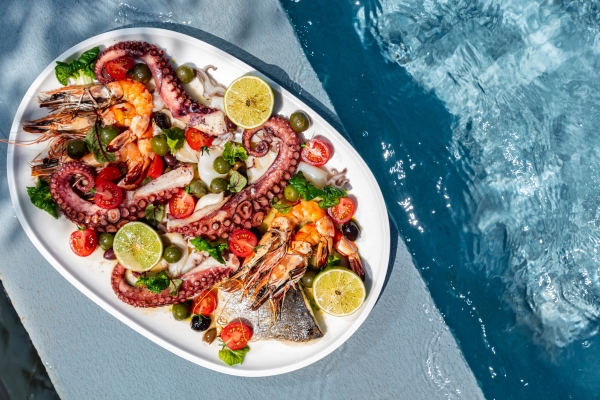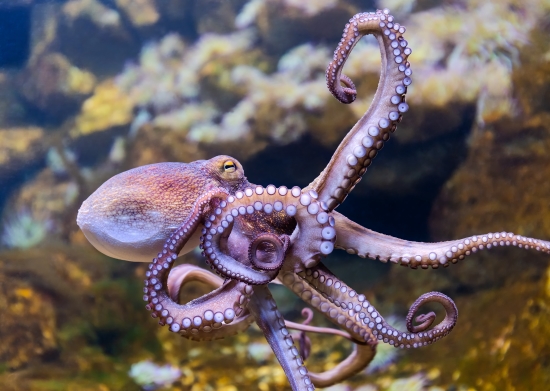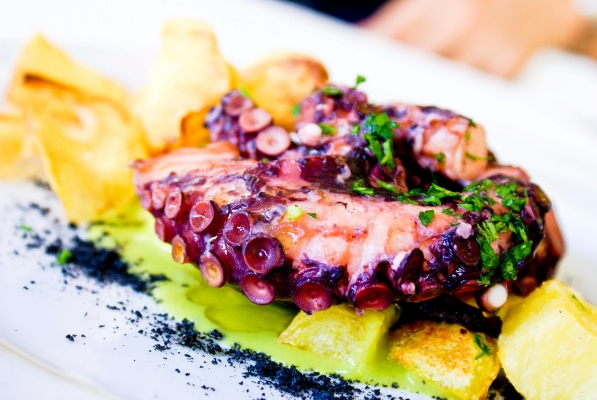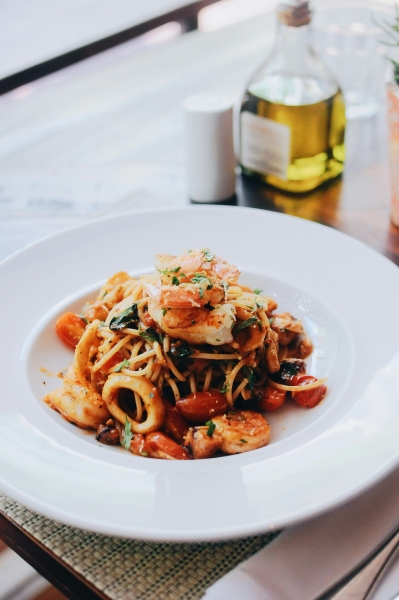Updated June 11, 2025
In Western culture, it’s common to see seafood on a menu like salmon, shrimp, scallops, and lobster.
When dining at a Japanese restaurant like Shogun Japanese Steakhouse, you may see slightly more adventurous seafood included, like calamari (squid) and octopus.

While these delicacies are becoming more common and widely enjoyed, it can be confusing to know the difference between the two.
Let’s take a deeper dive into octopus vs. calamari so you can order with confidence the next time you see either option on the menu.
Table of Contents
Under the Sea

Octopus and calamari are both saltwater creatures that live in areas from the tropics to more temperate zones.
Like clams and oysters, octopus and calamari are mollusks (invertebrate sea creatures) classified as cephalopods, meaning “head-footed.”
This means their “arms” are connected directly to their heads, while the rest of the body is actually in front of the head.
Cephalopods are physiologically like other mollusks, though they lack a shell.
An octopus has no shell at all, while calamari have a small flexible backbone called a “pen.”
When in danger, both use defense mechanisms like camouflage and shooting ink at their predators.
Calamari swims in the open waters, either alone or in schools, while octopus are solitary creatures that live in dens along the sea floor.
When it comes to catching their food, both octopus and calamari use eight sucker-lined arms to trap prey. Calamari primarily eat fish and shrimp while octopus dine on bottom-dwelling crustaceans and mollusks.
So, while there are plenty of similarities between the two sea creatures, they are distinctly different.
But how do they compare as culinary delicacies?
Taste and Cooking
Octopus and calamari are commonly confused, though they’re surprisingly different in taste, especially when served raw.
They also require different cooking methods to optimize flavor and texture.
People often think calamari is octopus, when in fact it’s an entirely different creature. The preparation can cause confusion, especially since they do have similar tastes after cooking.
Here are some of the main differences when it comes to octopus vs. calamari.
Octopus

Octopus has a mild, light flavor that some people compare to chicken or even pork.
It’s a low-calorie protein that is nutritious and filling, packed full of vitamins and iron while low in fat.
Octopus can be prepared by blanching it in boiling water and then baking it. It can also be boiled, grilled, or poached.
It’s also a versatile protein that tends to adapt to the flavor of the ingredients with which it’s served.
Many people choose to eat octopus raw, too.
Calamari

Calamari meat has a smoother texture than octopus, though it can be a bit tougher. However, when cooked properly, it is tender and succulent.
It also easily soaks up butter and sauces for extra moisture and flavor.
Calamari can be prepared in a number of ways, including braising, boiling, searing, grilling, and deep frying.
The key to getting a tender texture rather than a chewy one is to cook the calamari hot and fast or low and slow. Cooking at temperatures in between will leave you with unpleasantly tough meat.
Compare for Yourself When You Dine at Shogun Japanese Steakhouse in Orlando

At Shogun Japanese Steakhouse, you’ll find both octopus and calamari on our menu.
Discover the deliciousness of octopus when you order nigiri or sashimi from Sakura Sushi as an appetizer.
Then, opt for calamari as your teppanyaki entrée and watch as it’s grilled right at your table by a skilled teppanyaki chef alongside fresh vegetables and fried rice.
If you’re craving a different kind of seafood, you can also order delicious entrées like salmon, lobster, and scallops.
Chicken, steak, and tofu are also available as mouthwatering options for anyone who prefers their protein sourced from on land.
Enjoy a truly unique and entertaining meal the whole family will love, make a reservation at Shogun Japanese Steakhouse in Orlando. You’re sure to leave smiling and satisfied.



